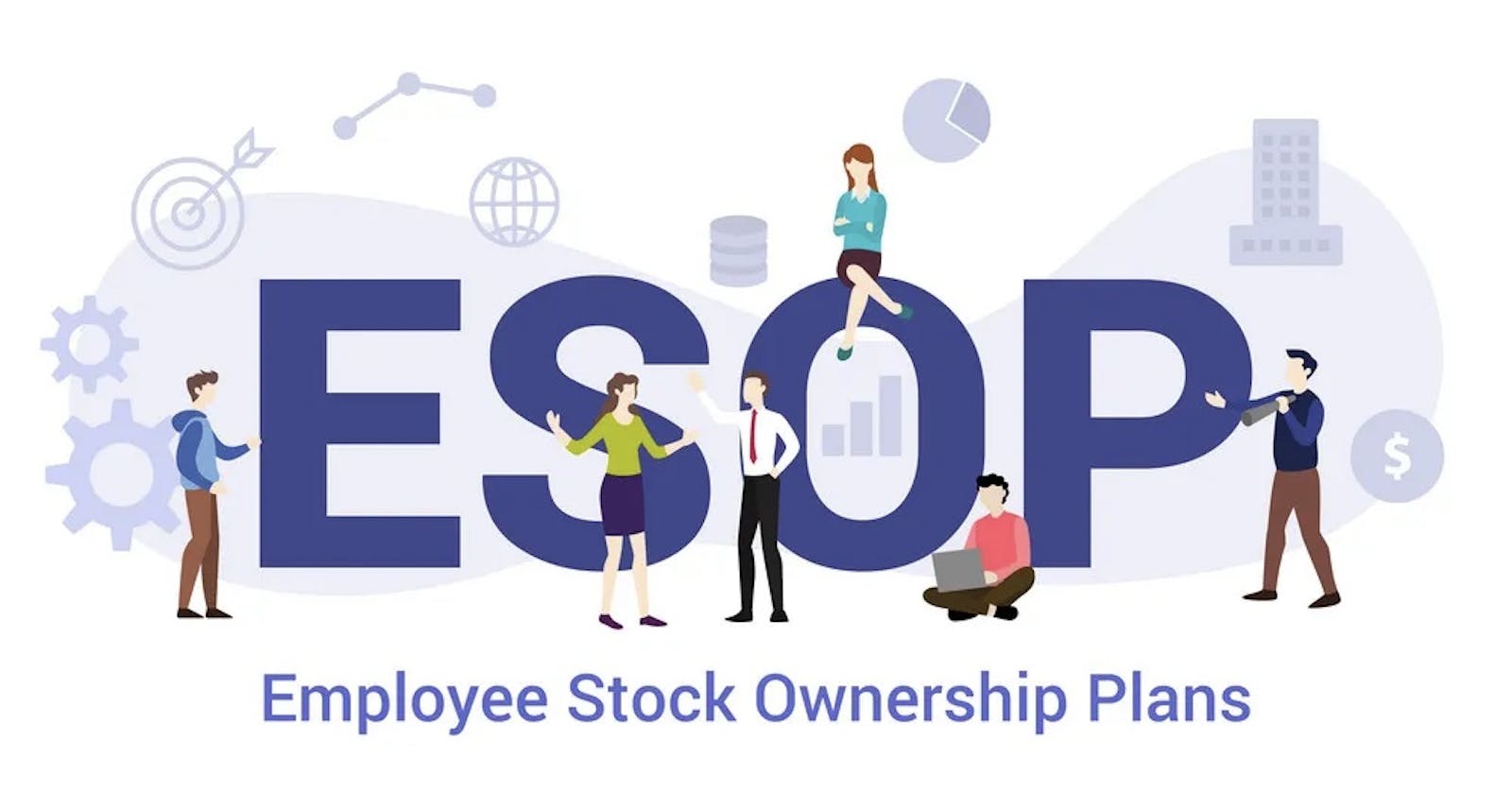What are ESOPs? (Employee Stock Option Plans)
In layman’s terms, ESOP is when a company sets aside a certain number of its shares for the employee to buy in the future, usually after a period of one year. The shares allocated for ESOP are set aside at a fixed price so if the price of the share goes up, the ESOP is unaffected by it. Which means after a vesting period (usually one year). The employee can benefit from exercising the option by buying the specified shares at a price, drastically lower than the market price. Companies grant ESOPs to their employees as part of their compensation package. While ESOPs have traditionally been granted to senior employees, many firms, particularly start-ups, are now extending them to low level employees/staff.
What is a vesting period?
Vesting period is the waiting period until the employee qualifies to exercise the option given to them which is usually after a year of employment. So if an employee is hired on March 1st of 2022, they will be qualified to exercise the option (buy the allocated shares) on March 1st of 2023.
VESTING PERIOD VS CLIFF PERIOD
Vesting period is the time period of gaining rights to the equity. During this period the beneficiary has not acquired the option but they are partially vested. It’s the process of gaining full legal rights to something. People may refer to their shares or stock options as vesting or may say that a person is vesting.
Cliff vesting is the point in time when the beneficiary has completely acquired the rights to the options, the person is considered fully vested at this point.
STOCKS VS OPTIONS
It’s important to understand the distinguishing factor between stock and option to get a better idea about ESOPs
Stocks are available for anyone to buy at any given time with no restrictions on the trade. The price of stocks is always changing.
Options in Employee Stock ‘OPTION’ plans is when a company makes available a certain number of shares to its employees in the future at a less than market value cost. The employee has the right, but not the obligation, to buy a promised number of shares at a predetermined price that’s fixed, for example, if a person is hired at a company, the company will offer the person with an option to opt into buying a given number of shares after the vesting period has run its course. The company will allocate shares for the employee to buy but will impose a restriction on the employee’s ability to purchase it until the vesting period is complete.
Partially Vested vs Fully vested?
For the sake of understanding this concept, let’s say an employee is given an ‘option’ of 100 shares as a part of his hiring package. The employee will only be able to exercise that option in 4 installments (each after a year of staying at the company) So they will be able to exercise their option to buy shares after they have stayed at the company for the time corresponding to the maturity of that option. It would be broken down in the following manner - 25 shares in the first year and 25 more in the second year so on and so forth until the 4th year. The employee will be fully vested at the end of the 4 year period. This strategy is employed as a means to retain talent at the company for an extended period of time.
Why not just pay the employee a higher salary instead of EOSPs?
EOSPs allow the company to align the incentives of the employee with the owners.The company is essentially enabling its employees to become quasi-owners of the company by holding those options and have skin in the game. It also allows the employee to work while keeping in mind the interests of the company’s shareholders. ESOPs help businesses, particularly cash-strapped start-ups, attract and retain talented people. A significant proportion of the salary at many start-ups may come in the form of ESOPs. While this may mean a lower amount of cash in hand for the employees, the potential for exponential gains after selling these shares at some point in the future makes employees value them, and of course its not realizable income until the stock is sold.
Benefits of ESOPs for Employees
ESOPs are beneficial for employees in the following ways:
Stock Ownership Employees can enjoy ownership in the company that they work for, as ESOPs give them the right to own a part of the company’s share capital.
Buy Shares at a Discounted Rate At the time of exercising the ESOPs, employees usually pay a nominal amount to buy the shares allotted to them. This, therefore, allows them to invest in the company at a preferential rate.
Dividend Income :- A part of the profit earned by the company is distributed among the shareholders in the form of dividends. Employees can, therefore, earn additional dividend income and also get the direct benefit from the efforts that they put toward the company’s profitability.
An interesting story about ESOPs
It has been 18 years since Facebook was launched (2004). A year later in 2005, Facebook needed their office building to be painted so they hired an artist named David Choe. After painting the whole building he charged them $60,000, the company offered to pay him in stock. Rather than take cash, Choe accepted Facebook stock worth 60k and held the stock. When Facebook went public in 2012, his equity was worth $200M.
PS: If you are interested in remote software engineering, and want to be immersed in the culture and community follow me on Twitter. I tweet every two days and the community will help fastrack all our careers.
